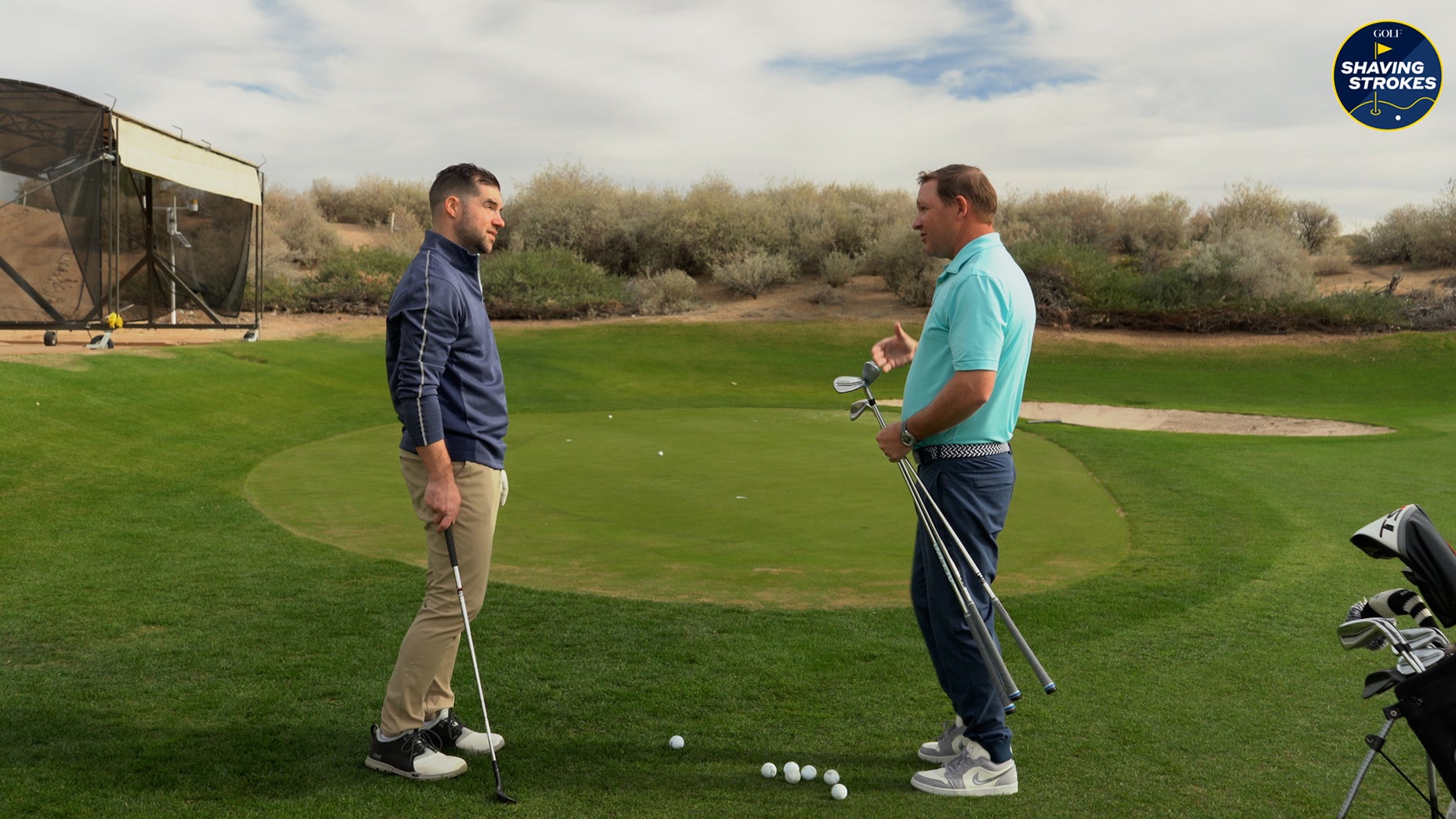3 club options for short game success

Don’t just default to the lob wedge in the short game, says the top teacher.
Photos by Chad Gibbs
Welcome to Shaving Strokes, the GOLF.com series where we share the progress, lessons learned and takeaways from novice golfers like you — including the speed bumps and challenges they’ve faced along the way.
It’s always impressive when I see a great golfer hit a difficult shot with an unusual club choice.
For example, during a lesson last year at 60 yards, GOLF 100 head instructor Brian Mogg made me rethink my strategy from that tricky distance. Mogg showed me that opening the face with an 8 iron would actually be a better weapon to stick around.
But Mogg is not the only great golfer who does this kind of thing. In fact, look at any top golfer, and you’ll notice plenty of them using other clubs in the short game – especially if you’re playing nifty course designs like the Renaissance Club for this week’s Scottish Open, and Royal Troon for the Open Championship next week coming. .
Thinking outside the box can be an important part of getting low scores, and if you understand how to shoot with different types of clubs, you will see much shorter game success.
So how can you, the average golfer, do this? Golf Instructor to Watch Chad Gibbs shares his tips below — along with three other club options to try while on the green.
Try these 3 different clubs in the short game
“When an elite golfer misses the green on traditional course designs, they’re usually hitting shots with their lob wedge, and many put a lot of backspin into their chips and pitches,” Gibbs tells me. “These players are so talented that they can control the ball like a yo-yo on a string.”
But things often change when golf is played on links-style designs.
“The biggest difference between the American course and the link course is the slow movement of the greens,” Gibbs said. “This gives me more short game options from the green – and the following clubs are some of my favorite to try.”
The Putter
The great Arnold Palmer once said “your worst putt is usually as good as your best chip,” so, in that vein, why not keep the ball down and use the putter when you’re off the green? Yes, the Texas Wedge can be an effective strategy – despite being unpopular with many novice golfers.
To use the putter from the green, two things are important. First, you have to hit it hard. If you don’t, it will start jumping and jumping early in the morning. Second, you need to release the toe, which will allow the ball to move forward and bounce slightly as it approaches the green.
By using those two simple techniques, you will start to see better results when you use the putter from the green.
5-wood (hybrid)
During the 2004 Open Championship at Royal Troon, defending champion Todd Hamilton popularized this approach, as he used the putt anywhere from 5 to 15 yards from the green.
When using this club, your path should be similar to a putter – but be careful, because the ball comes off the face a little livelier than a flat club. This means using a smaller backstroke, allowing the energy from the clubhead to generate the power needed to roll the ball.
Most rookies should just keep the ball down as long as possible in the short game, so this is a viable option to do so.
6-metal
Sure, the flop shot is more impressive and probably more fun to hit, but it’s more dangerous than a regular swing – which also helps keep the ball’s flight down when you’re around the putt.
To hit the perfect bump-and-run in the short game, you need to squeeze the ball like a putt, lift the heel of the club well off the ground, and make a long putting stroke. Also make sure you use a small amount of shaft lean, making sure you hit the back of the ball.
So for your next round of golf, do as the pros do in the short game and use different types of shots with different clubs. You might just find a new weapon that gives you a leg up on your teammates.
Source link







